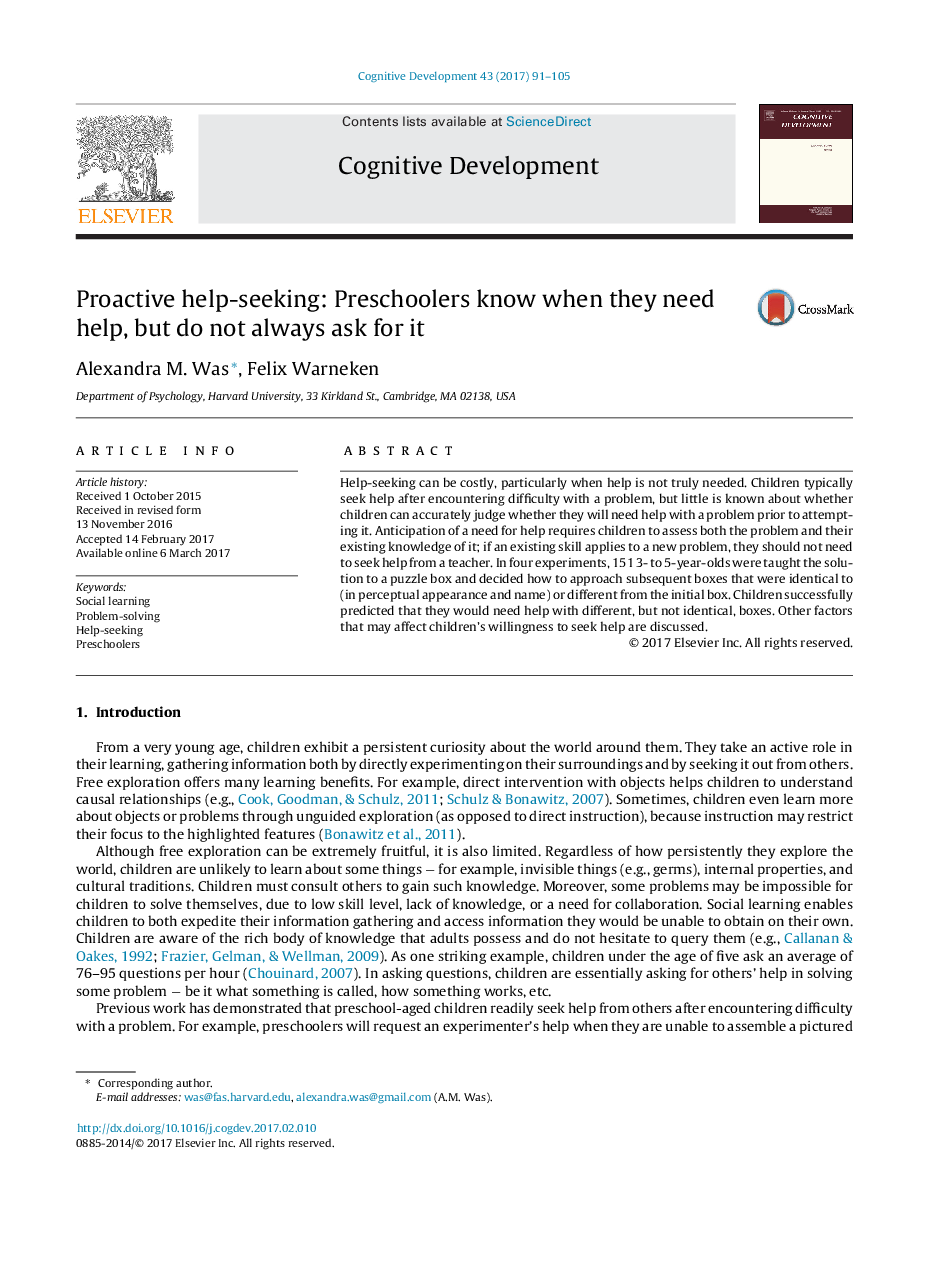| Article ID | Journal | Published Year | Pages | File Type |
|---|---|---|---|---|
| 5039667 | Cognitive Development | 2017 | 15 Pages |
â¢3- to 5-year-olds' ability to predict when they will need help with a problem is tested.â¢Preschoolers use kind information to guide their help-seeking.â¢After learning the solution to one kind of problem, children proactively seek help only with problems of a different kind.
Help-seeking can be costly, particularly when help is not truly needed. Children typically seek help after encountering difficulty with a problem, but little is known about whether children can accurately judge whether they will need help with a problem prior to attempting it. Anticipation of a need for help requires children to assess both the problem and their existing knowledge of it; if an existing skill applies to a new problem, they should not need to seek help from a teacher. In four experiments, 151 3- to 5-year-olds were taught the solution to a puzzle box and decided how to approach subsequent boxes that were identical to (in perceptual appearance and name) or different from the initial box. Children successfully predicted that they would need help with different, but not identical, boxes. Other factors that may affect children's willingness to seek help are discussed.
